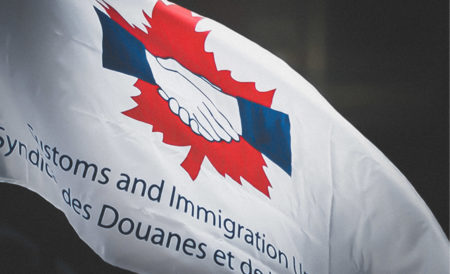Once again a spotlight has been put on systemic anti-Black racism in the justice system – one that has oppressed Black, racialized, and Indigenous people for centuries. Most recently, in the United States, Ahmaud Arbery a Black man who was simply jogging was shot to death, and George Floyd a Black man buying groceries, was killed by police officers. Breonna Taylor, a Black woman, was shot in her home in the middle of the night.
In other cases, white people threatened to call the police on Black people for simply participating in every day activities such as: bird-watching, working out in a gym, driving through a neighborhood, etc. These are activities white people do without fear every day and yet, for Black citizens, no activity can be accepted as “safe” when society is rife with systemic racism and those entrusted to protect all citizens repeatedly murder unarmed Black civilians.
Only after videos were released and protests erupted across the country were charges brought against police officers in two cases involving the killing of unarmed Black men. Not enough is being done. Anyone who uses unnecessary violence and force, whether resulting in death or harm must be held accountable – especially police officers and white supremacists. Rarely in the past have they been charged let alone convicted.
There are those who feel that this is an American issue. It is a Canadian issue too. Black people across Canada have been, and continue to be, racially profiled through carding and other forms of racially biased surveillance. A 2018 interim report from the Ontario Human Rights Commission found that Black people are grossly over-represented in police violence in Ontario. Although the Black population was about 8.8% in Ontario in 2016, use-of-force cases involving Black people was 30%. During the period 2013-2017, deadly police encounters with Black people were 60% and fatal shootings were 70%. Most recently, it was alleged that police were involved in the death of Regis Korchinski-Paquet, an Indigenous-Black woman who fell to her death from the 24th floor balcony of an apartment in Toronto.
Black people must be able to walk, jog, shop, play, work, sleep and engage in everyday activities without fearing for their lives. Black lives matter. Black parents should not have to talk and prepare their children about violence and hatred directed towards them as a result of the colour of their skin, including the possibility of being killed by those who were meant to protect them. Black lives matter.
PSAC stands in solidarity with the Black community and demands justice both in the United States and in Canada. The impact of systemic racism must be recognized. The pain, and the impact of the repeated killing of Black and racialized people, and the continuous images of violence against Black and racialized people in the media and social media platforms must be recognized. Black Lives Matter.
PSAC demands that racial profiling and the unnecessary violence used against Black people be stopped immediately. Before justice can be served, a complete overhaul of the criminal justice system and other systems that support the oppression of Black, racialized and Indigenous People must be undertaken as a first step to eliminate the deep-rooted systemic racism and unconscious bias against Black, racialized and Indigenous people.
Silence as white or non-racialized people is complicity with white supremacy and with continuing acts of systemic anti-Black violence. What actions can we take collectively against anti-Black violence and oppression? How can we best support the Black community? We must challenge our systems and institutions. We must speak up in the face of injustice, racial violence and white supremacy. We must challenge our unconscious biases. We must be part of the solution.
“If you stay neutral in situations of injustice, you have chosen the side of the oppressor”
– Desmond Tutu
“Injustice Anywhere is a Threat to Justice Everywhere”
– Martin Luther King Jr.
The original version of this article was first posted on the PSAC website.







